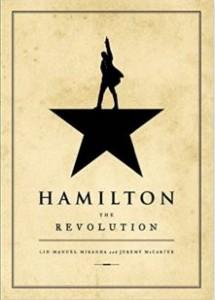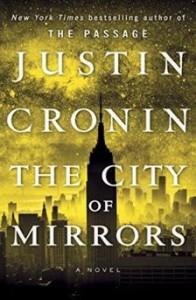Posted by Anne M on Thursday, Mar 17, 2016
The spring publishing season is just starting up and that means there are so many books to be excited about. Here is a rundown on some of the most anticipated releases of the next few months:
Later this month:
The Year of the Runaways / Sunjeev Sahota
Short-listed for the 2015 Man Booker Prize, we’ve waited a long time for this novel to cross the pond. The book follows the paths of three Indian men, who are recent immigrants to England, as they try to navigate living in a new country and coming to terms with what they left behind. Publishers' Weekly writes, “Sahota’s characters are wonderfully drawn, and imbued with depth and feeling.”
The Nest / Cynthia D’Aprix Sweeney
This book, about four siblings grappling with the possibility of losing their inheritance, is on everyone’s list as a must-read. Starred review in Kirkus, an Amazon Best Book of March, and a nod from Amy Poehler makes it worthy of your hold list.
Other upcoming March releases: Hold Still by Lynn Steger Strong and The Association of Small Bombs by Kara Mahajan
Coming this April:
 Hamilton / Lin-Manuel Miranda
Hamilton / Lin-Manuel Miranda
Lin-Manuel Miranda and Jeremy McCarter write about the six-year development of the Broadway sensation Hamilton, provide footnotes to all the lyrics, and tons of photographs (never before seen!). If you have all of Hamilton memorized and are finding ways to get to Chicago this September, then put a hold on it.
Lazaretto / Diane McKinney-Whetston
Set in a quarantine hospital for immigrants awaiting arrival in Philadelphia during the Civil War (a scene ripe for a story!), McKinney-Whetston follows the African-American staff as their lives entwine with a changing America.
Other hold-worth April reads: Sleeping Giants by Sylvain Neuvel, Eligible by Curtis Sittenfeld, Our Young Man by Edmund White and Maestra by L.S. Hinton
Yay, May!
 City of Mirrors / Justin Cronin
City of Mirrors / Justin Cronin
Loved The Passage and The Twelve? Well, the final installment of The Passage trilogy is almost here! Stephen King calls it “one of the great achievements in American fantasy fiction,” so if you haven’t picked up the series, it’s probably time.
Joe Gould’s Teeth / Jill Lepore
Jill Lepore set out to find the manuscript of “The Oral History of Our Time,” supposedly the longest book ever written and supposedly composed of everything ever spoken to Gould as a way to show ordinary life. Masterpiece? Maybe. The work received recognition in magazines and newspapers in the 1940's but never was published and disappeared after Gould died (in a mental hospital). So, did it ever exist? Lepore finds out.
Lots of fantastic books coming out in May, including LaRose by Louise Erdrich, Modern Lovers by Emma Straub, The Gene by Siddhartha Mukherjee, The Fireman by Joe Hill, The Noise of Time by Julian Barnes, Imagine Me Gone by Adam Haslett, Zero K by Don DeLillo, and Redemption Road by John Hart


A lot of “pandemic novels” are coming out right now—at least narratives inspired by or written during the pandemic and everything that happened within that time. They provide a window into what authors were thinking about, working through, or grappling with during the height of the pandemic. Lauren Groff’s thinking was pretty bleak. Her thoughts turned to the “Starving Time” of Jamestown: crops failed, disease flourished, and those that survived ate everything. The narrative centers on a white servant girl, who is called many different names in her short life, and her decision to run away from the colonial settlement and strike out on her own in hopes of finding the French. She is hungry and afraid in the settlement and what is unknown to her beyond the palisade holds better chances for survival. The story follows her during those first few weeks with glimpses into how she found herself on this side of the Atlantic. This survival novel is engrossing, and it takes on quite a few subjects: colonization, land use, 17th century religion, and the oppressively hierarchical structure of English society. But also, what does it mean to be human when you are alone? What does real survival mean? Groff left me with more questions than answers, but good novelists do that. -Anne M